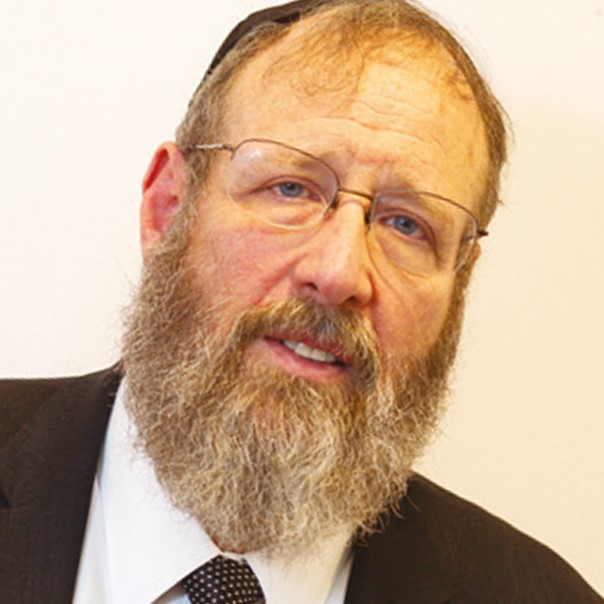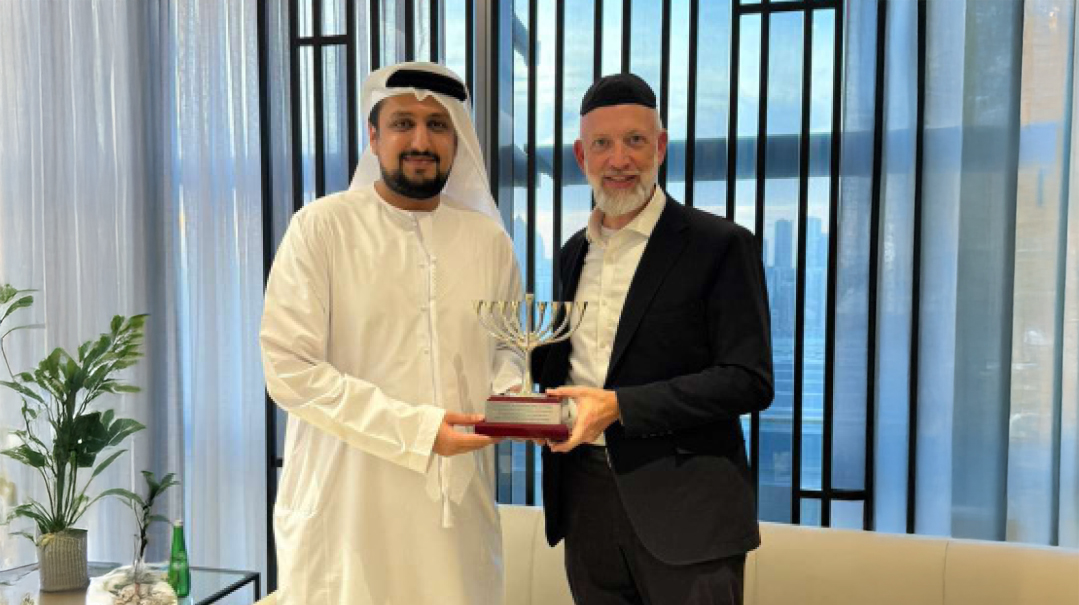The Limits of Reason

Time to face the limitations of our human sense of morality
R
osh Hashanah is the opening salvo of ten intense days of teshuvah, which culminate in Yom Kippur. Yet none of the features of our avodah on this Yom Tov seem to suit that description. Our tefillos make no mention of our individual sins. Neither do we recite Vidui. In fact, our attention to teshuvah on Rosh Hashanah seems faint in comparison to the rest of the Aseres Yemei Teshuvah, when we make frequent reference to aveiros and repentance as we say Selichos.
Rather, the singular focus of our Rosh Hashanah tefillos is on affirming Hashem’s Divine monarchy. How does this theme provide a starting point for teshuvah?
To understand the inner meaning of our avodah, we look for the templates Hashem puts in front of our eyes in this world. Says the Zohar (in its discussion of the inner meanings of tekias shofar), if we have no explanation from the Sages, we are to “observe what occurs in the perceived world… for Hashem has ordained that all that happens in this world is analogous to that which takes place above.”
Therefore, let us analyze a phenomenon that has been taking place “on this Earth” to understand an important foundation of our avodah on Rosh Hashanah.
For the past few months, Israel has been wracked by the debate concerning the Supreme Court’s power to negate government actions and/or legislation on the basis of “unreasonableness.” In most countries, the High Court can nullify laws or government actions that contradict preexisting laws or a national constitution. In Israel, however, the High Court can act based on the seemingly “unreasonable” and unjust nature of the government policy or law itself. Regarding Israeli politics and turmoil surrounding this issue, I leave it to people who are knowledgeable on the subject to offer an opinion. I would like to focus on a more fundamental point that is lost in the political hullabaloo.
At first glance, we are tempted to say that a democratic government should operate according to majority rule. But let us ask ourselves: If the majority of people decide to cancel the democratic form of government and install a dictator, should that become the law? If a law is passed requiring the wealthiest 25 percent of the population to allow the government to redistribute their wealth (which would probably garner 75 percent of the vote), should that law stand just because a majority passed it? If a majority passes a law that a minority of people should be enslaved, should that be the law of the land? We can think of many examples like this.
So how should we describe the criteria for just laws? I think that the word “reasonable” is a bit misleading. Every act of reasoning is based on two foundations: accepted principles, and logical derivations from these principles. Thus, economic activity is built on the principle that maximizing profit is good. On that basis, people analyze what activities are conducive to maximizing profit. Similarly, the “common welfare” is the foundational principle of good governance. Therefore, the details of how the government is run should be derived logically from that principle.
These principles are what is being referred to as “reasonableness” in Israel’s High Court debate. However, I believe a better description, which acknowledges the significance being attached to them, would be “moral right and wrong.”
Who Decides What’s Right?
So far so good. I don’t think that anyone would disagree with this. But now we get to the trickier part. While the majority should decide how to achieve the common good, who gets to decide if these laws meet this purported moral standard?
One answer is to enlist a group of wise and learned individuals who are removed from the fray of market activities, who have dedicated their lives to this goal; theoretically, they would be the ideal guardians of these moral principles. Without tendering an opinion on whether such a group actually exists, let us examine this premise itself.
If we were to poll the opinions of all the wise and learned individuals concerning moral principles, we would hear every answer possible. For example, among the great works of philosophy, there is almost no consensus about anything. Depending on who you ask, private property is either sacred or a great evil. Marriage is either the bedrock of society or archaic. Patriotism is either noble or the root of all war, and so on. Even democracy itself is totally nixed by Plato; was Plato unreasonable?
But this leaves us confounded. Doesn’t every decent human being have a sense of morality?
The answer is that morality is indeed a universally accepted concept. But if we ask, “What is moral?” we will receive as many answers as there are people. The solution to this conundrum is to recognize that, despite most human beings’ intuitive sense of morals, morality itself is rooted in the Divine.
Thus, the serpent, when tempting Adam and Chavah to eat from the Eitz Hadaas, had one sales pitch: “If you eat from this tree, you will truly know good from evil.” This power was solely Hashem’s; He had not granted it to Adam. After eating from the tree, not only did Adam not gain the ultimate knowledge of good and bad, but even the intuitive awareness of tov and ra that he had possessed became muddled and confused. As a result, mankind is afflicted with this chaotic riot of opinion, in which every possible moral position is proposed by intelligent, “reasonable” people. Every individual represents only one limited perspective on the Divine, and it is most often skewed by various biases.
Let us now come down to Earth and touch base with ourselves. As the Yamim Noraim approach, we begin the process of rebuilding our own moral character. There are two critical points in the calendar for this process: Rosh Hashanah and Yom Kippur. While Yom Kippur, with its many recitations of Vidui, is the visible part of the process, Rosh Hashanah lays the foundation. Rosh Hashanah expresses the axiom that morality is rooted in Hashem, and that He alone calibrates good and evil in this world.
The event that is identified with the essence of Rosh Hashanah is the Akeidah. This event is, in Hashem’s eyes, the ultimate good. However, it leaves human beings totally baffled. And that was exactly the point of it.
Because Avraham Avinu was a perfect servant to Hashem, who recognized Hashem’s definition of good to the full extent possible by humans, it was he who was chosen to teach us that the human being’s sense of good, no matter how attuned to the Divine, is not the end of the story. In obeying Hashem’s command, Avraham acknowledged that the good which mankind — even at its most elevated — is capable of recognizing is but a branch of something far, far bigger, which is rooted in Hashem.
When Avraham met that challenge, Hashem told him, “Now I know that you truly fear Elokim.” This praise meant, “Your own moral awareness did not blind you to the fact that morality is rooted in something beyond man’s limited understanding.”
This indeed is the essence of Rosh Hashanah. In recent years, it has become somewhat of a ritual for many “rabbis” — some who proclaim themselves Orthodox — to speak out against Hashem’s testing of Avraham through the Akeidah.
Besides the incongruous spectacle of a “rabbi” berating Hashem, this wrongheaded critique is the exact opposite of what Rosh Hashanah is meant to be. Rather than putting forth the humble message that “I truly do not understand Hashem’s ways,” he implies, “I understand far better than You!”
But what about ourselves? When confronted with a psak halachah or a din Torah that doesn’t sit well with us, do we sincerely say, “My seichel fell short of determining right and wrong”? Or is our reaction very different? Have we ever conceded our reason to something above it? At best, we shrug helplessly and say that despite their “getting it wrong,” we have no choice but to follow the psak.
Without the recognition that our wrongful acts are wrong because Hashem deems them as such, and that our deeds have diverged from His will, our Yom Kippur is lacking. We regret the sins we have committed, but only because, on further consideration, we know they cannot benefit us. But teshuvah is not defined primarily by regret. Rather, it is the return to Hashem, and that is the work of Rosh Hashanah.
All of the above is not only essential to our avodah during the Yamim Noraim, but also to our ability to meet our personal challenges with emunah intact. Almost everyone faces challenges that seem to fail the “reasonableness test.” One person struggles with recurring health issues that rob him of the ability to live what he considers a meaningful life. Another person struggles to care for a severely incapacitated family member. Still another person wrestles with an ever-growing mountain of bills and debts, which, despite valiant efforts, only keeps growing. And how many people are spending years trying to find a spouse and begin family life, but to no avail?
As hard as we try to accept these situations, we cannot help but think that they simply do not “make sense.” Certainly, we must pursue appropriate hishtadlus and tefillah, but do we actually have the inner emotional recognition that “This is Hashem, and therefore, it is beyond my understanding”?
We say lengthy Viduim on Yom Kippur. However, in the Beis Hamikdash, the Kohein Gadol only said, chatasi, avisi, pashati. But there is one critical opening phrase to the Vidui: “Ana Hashem” — Please, Hashem! With this plea, we declare that Hashem is the ultimate Source of morality. If we have sinned, it is against Hashem that we have sinned, for that is the core definition of sin. Once we have established that, then our enumeration of our various aveiros takes on its true meaning. We can then wait for Hashem, the Source of tov and ra, to answer us: Salachti kidvarecha!
(Originally featured in Mishpacha, Issue 978.
Oops! We could not locate your form.







